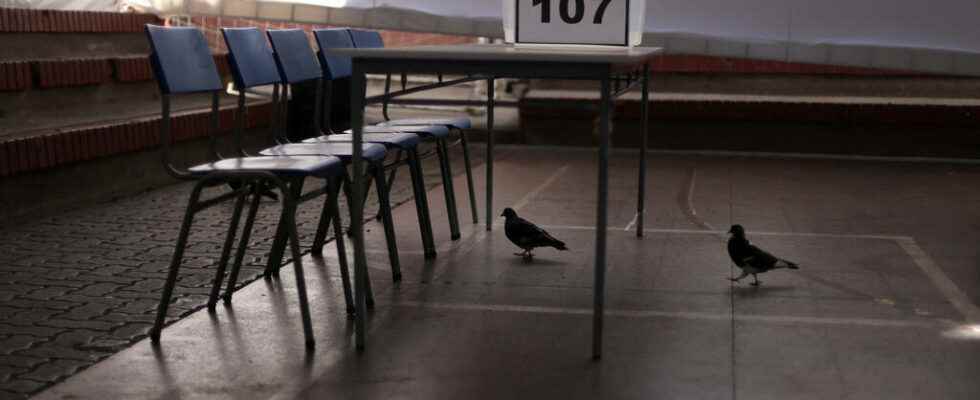This Sunday the Chileans vote to say whether or not they approve the text of the new Constitution written by an elected, joint assembly – it is a world first, and with the participation of the indigenous peoples. The text was widely debated and the debate very polarized.
Parity and guaranteed social rights, recognition of a plurinational state or regionalization, are some of the proposals of this text considered progressive or even innovative by international observers. But in Chile, it is far from unanimous and it divides the population, recalls our correspondent, Naila Deroisne. The polls also predict a rejection of the draft Constitution.
► Read also : In Chile, a highly disputed constitutional referendum on September 4
What will happen if the text is rejected?
In case of ” rechazo Chile would retain the current Constitution, which would make it more difficult for the progressive government to Gabriel Boric which relies on the new fundamental law to implement its major social reforms: taxes, pensions and health. As Luis Garrido Vergara, a doctor of sociology, points out, tax reform – which had been one of the major campaign themes by Gabriel Boric-, would then be complicated, because it “ implies profound changes on the economic level and therefore to deal with the rules of the current Constitution “. A very liberal Constitution inherited from the dictatorship ofAugusto Pinochet.
Faced with this rejection scenario, the Chilean President has already announced that if the text is rejected, the constitutional process must continue because there is nevertheless a consensus within the population to put an end to the Constitution of the dictatorship: the Chileans expressed it during the first October 2020 referendum. But in reality it is not so simple: it would be up to Parliament to make the decision, and it is not guaranteed that the conservative right will give its agreement to launch the drafting of another Constitution. ” Even within the camp that rejects the new Constitution, the center-left would try to promote a new constitutional process while the more conservative right would simply like to reform the current Constitution. », continues Luis Garrido Vergara.
Finally, if it is the rechazo who wins, some fear a resurgence of protests, especially from the student world, largely in favor of the new Constitution. ” We are in a situation with a great social polarization, where it is possible that we will have demonstrations and strikes if the “rechazo” wins. Because for part of the population the rejection of the new Constitution is synonymous with social conflict “, predicts the sociologist.
And if approved?
If the new fundamental law is approved, President Boric will be able to rely on the new text to carry out his reforms. But it will not happen overnight because its implementation could last several months, even several years. And it will be necessary to apply transitional norms which will make it possible to bridge the gap between the current Constitution and the new one and to do this, the government will have to negotiate with the different parties in parliament.
Finally, whatever the result, Gabriel Boric will have the difficult task the day after the vote of bringing together a country already divided and in which a certain form of weariness is beginning to be felt.
